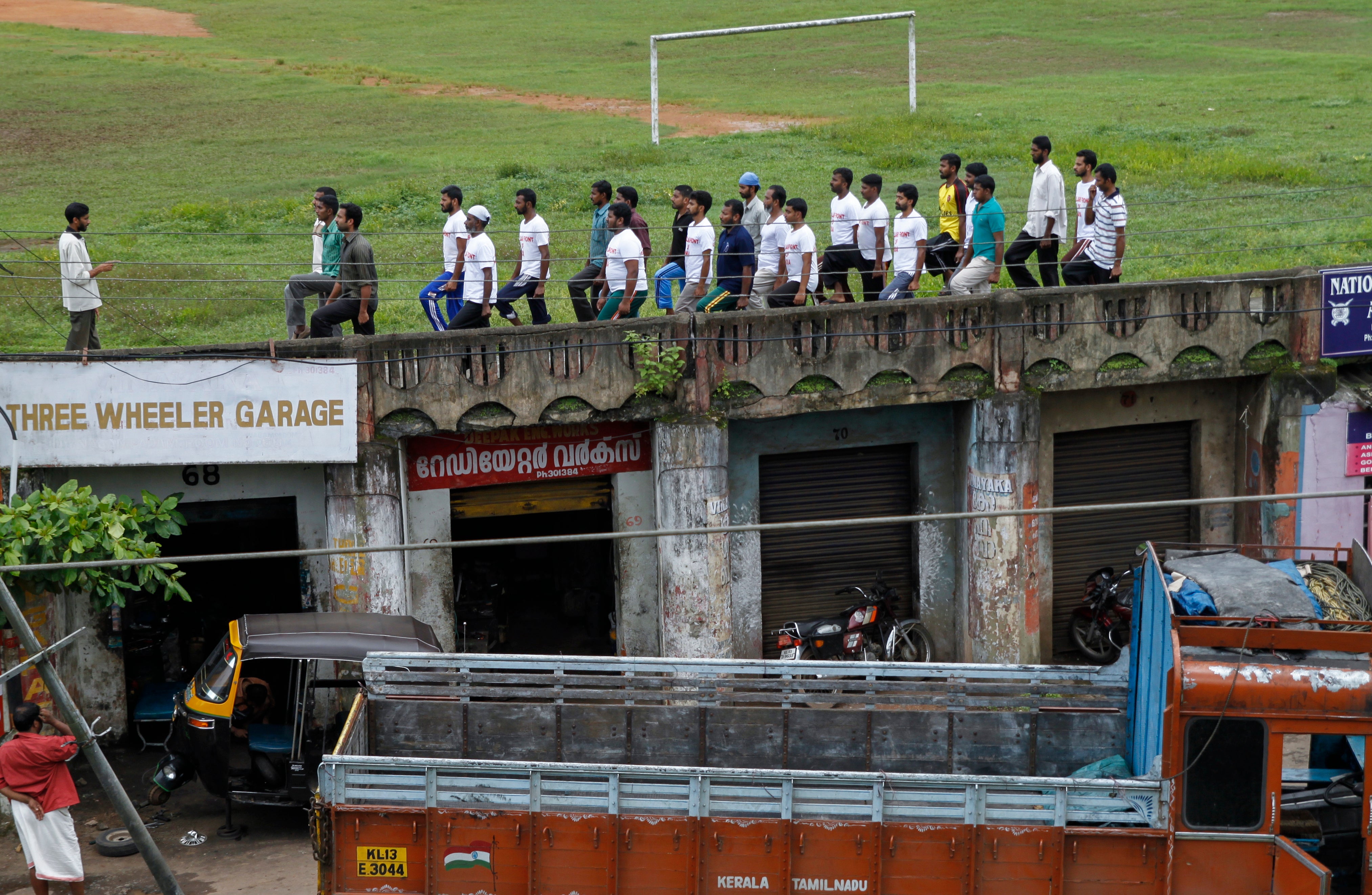India bans Muslim political organisation for ‘terror activities’
PFI has supported causes like protests against a 2019 citizenship law that many Muslims deem discriminatory

Your support helps us to tell the story
From reproductive rights to climate change to Big Tech, The Independent is on the ground when the story is developing. Whether it's investigating the financials of Elon Musk's pro-Trump PAC or producing our latest documentary, 'The A Word', which shines a light on the American women fighting for reproductive rights, we know how important it is to parse out the facts from the messaging.
At such a critical moment in US history, we need reporters on the ground. Your donation allows us to keep sending journalists to speak to both sides of the story.
The Independent is trusted by Americans across the entire political spectrum. And unlike many other quality news outlets, we choose not to lock Americans out of our reporting and analysis with paywalls. We believe quality journalism should be available to everyone, paid for by those who can afford it.
Your support makes all the difference.India has banned the Islamic organisation Popular Front of India for five years after the government accused it of being involved in terrorism and radicalising people for “anti-national activities”.
“The Popular Front of India and its associates or affiliates or fronts have been found to be involved in serious offences, including terrorism and its financing, targeted gruesome killings, disregarding the constitutional set up,” the home ministry said in a statement on Wednesday.
The government has also banned the affiliates of the group, including Rehab India Foundation, Campus Front of India, All India Imams Council, National Confederation of Human Rights Organisation, National Women’s Front, Junior Front, Empower India Foundation and Rehab Foundation, Kerala.
The government said that it found a “number of instances of international linkages of PFI with global terrorist groups”, including the Isis and accused it of participating in “terror activities” in middle eastern countries of Syria, Iraq and Afghanistan.
“The PFI and its associates or affiliates or fronts have been working covertly to increase radicalization of one community by promoting a sense of insecurity in the country, which is substantiated by the fact that some PFI cadres have joined international terrorist organisations,” said the ministry in its gazette notification.
The government has invoked the provision under the stringent Unlawful Activities (Prevention) Act, 1967, which gives extraordinary powers to law enforcement agencies to deal with activities allegedly directed against the integrity and sovereignty of India. Under the provision, it can also designate a person as terrorist pending court trials.
The ban follows the arrest of nearly 200 members and raids on its offices across the country, this month.
Founded in 2006, PFI has supported causes like protests against a 2019 citizenship law that many Muslims deem discriminatory, as well as protests in the southern state of Karnataka this year demanding the right for Muslim women students to wear the hijab in class.
Mohammed Tahir, a counsel for the group, rejected the allegations of terrorism, accusing the probe agencies of fabricating evidence. He said the government failed to present evidence of the organisation receiving outside money and funding terror activities in India.
PFI’s student wing, the Campus Front of India, called the action a political vendetta and propaganda.
"We are against the concept of a Hindu nation, we are against fascism, not India," Imran PJ, national secretary of the CFI, told Reuters. "We will overcome this challenge. We will revive our ideology after five years. We will also consider going to court against the ban."
Earlier on Tuesday, the group had denied the accusation of violence and anti-India activities when its offices were raided and members detained.
The Social Democratic Party of India (SDPI), which also work with the group on some issues was not included in the ban. It slammed the notification saying in a statement saying: “Freedom of speech, protests and organisations have been ruthlessly suppressed by the regime against the basic principles of the Indian constitution.”
“The regime is misusing the investigation agencies and laws to silence the opposition and to scare the people from expressing the voice of dissent. An undeclared emergency is clearly visible in the country.”
The ban is likely to stir an outcry among opponents of the Narendra Modi government and the right-wing Bharatiya Janata Party, which retains broad public support and a comfortable majority in parliament.
Communal tensions between Hindus and Muslims have been on the rise, which critics attribute to Mr Modi’s Hindu nationalist agenda.
Additional reporting from the wires





Join our commenting forum
Join thought-provoking conversations, follow other Independent readers and see their replies
Comments